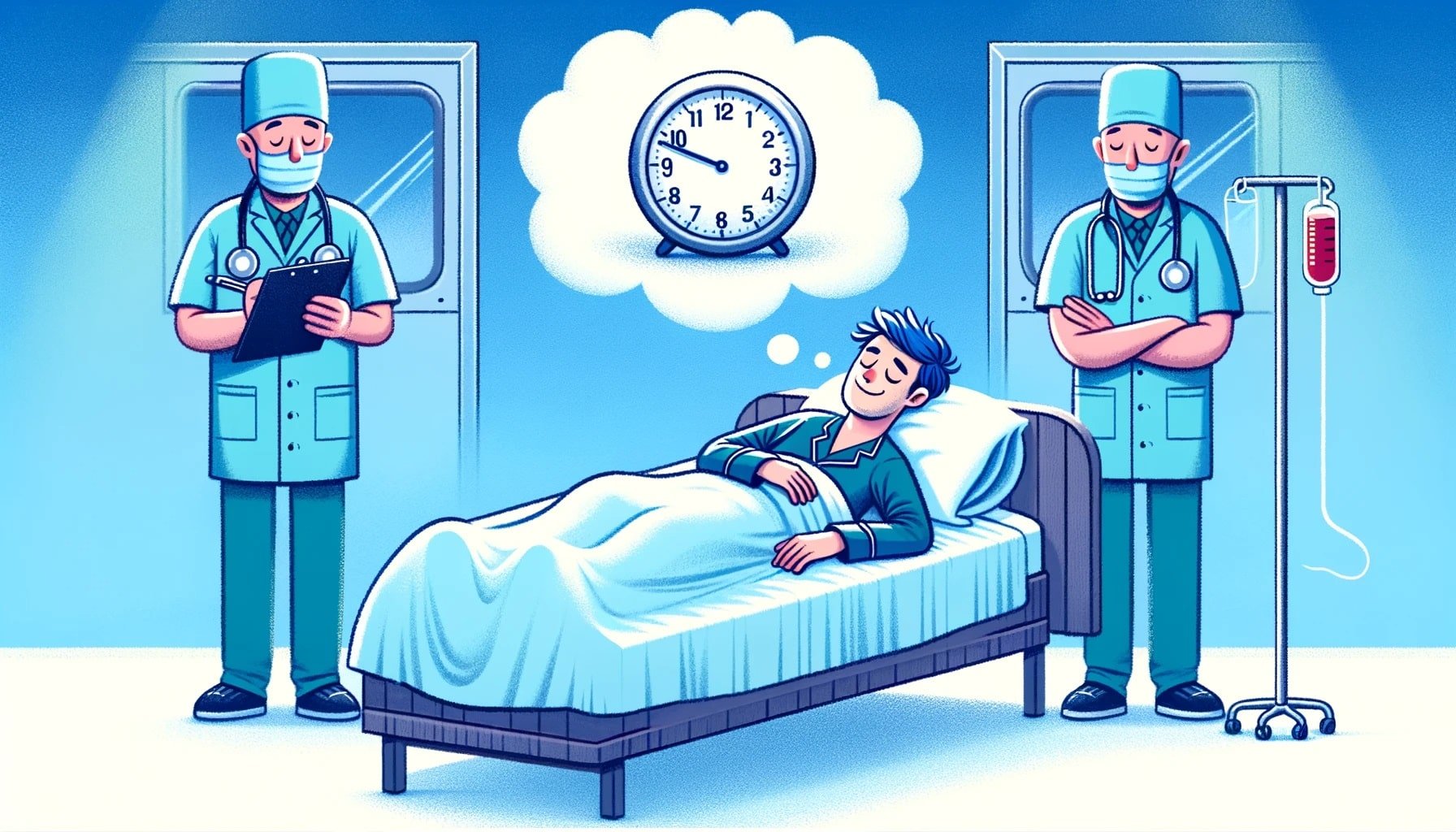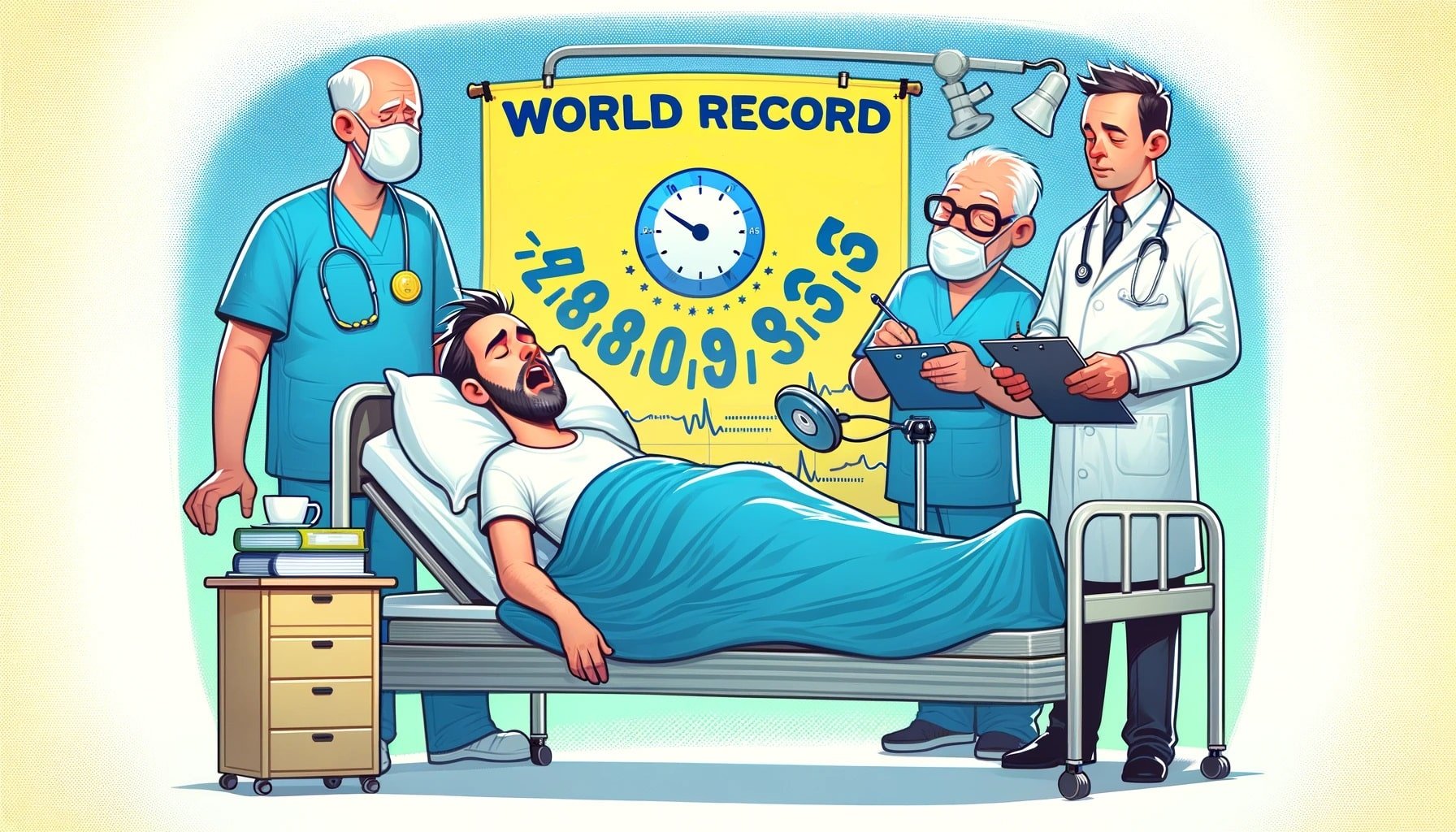10 Fascinating Sleep World Records - Could You Beat Any?
Embark on a journey through the world of slumber and endurance with this fascinating exploration of sleep-related world records.
From the astonishing feats of staying awake to the peculiar challenges of pushing beds over great distances, this article delves into the most intriguing and unusual records that revolve around our daily ritual of sleep.
Whether it's marvelling at the largest sleepover or being astounded by the speed of bed-making, each record offers a unique glimpse into the extraordinary capabilities and quirky pursuits of people around the globe.
Prepare to be captivated by these tales of human endurance, creativity, and the uncharted territories of sleep!
1. Fastest Marathon in a Sleeping Bag (Male)

The "Fastest marathon in a sleeping bag (male)" is a quirky and amusing world record that was set by Ben Burfoot of the UK. He achieved this feat on April 28, 2019, at the Virgin Money London Marathon.
Burfoot completed the marathon in a time of 3 hours, 41 minutes, and 59 seconds, all while encased in a sleeping bag! This record not only showcases a unique blend of athleticism and humour but also highlights the creative lengths people will go to set world records.
Burfoot was one of 38 successful world record attempts adjudicated at that marathon, making it a memorable event not just for traditional runners but for record-setters with unusual challenges as well. For more information, you can visit the Guinness World Records website here.
2. Longest Recorded Dream

The record for the longest recorded dream in terms of REM sleep duration was set by David Powell in 1994. During a sleep study in Seattle, Powell experienced a REM phase that lasted an extraordinary 3 hours and 8 minutes. This is recognised as the longest REM cycle officially recorded in a sleep lab setting.
Another significant record dates back to 1967 and is documented in the Guinness World Records. It involved Bill Carskadon, who experienced a REM sleep phase lasting 2 hours and 23 minutes on February 15, 1967, in Chicago, Illinois.
These records provide intriguing insights into the nature of dreaming. While REM cycle duration can be measured, the subjective experience of dream narratives, including their perceived length and content, varies significantly among individuals.
The phenomenon of time dilation in dreams can also make them feel longer than their actual duration in REM sleep, adding to the complexity and mystery of our dream experiences.
3. Largest sleepover/pyjama party

The largest sleepover or pyjama party on record was achieved by Girlguiding North West England in Cheshire, UK, on September 27, 2014. This remarkable event saw the participation of 2,004 people.
The record-breaking sleepover was part of a weekend's worth of activities, gathering a large number of participants for a unique and memorable experience. This event stands as an impressive example of community engagement and collective fun.
4. Loudest Snoring

The record for the loudest snoring is held by Kåre Walkert from Sweden. On May 24, 1993, at the Örebro Regional Hospital, Walkert's snoring reached a peak level of 93 decibels (A-weighted).
This volume is equivalent to the noise produced by a gas-powered lawnmower. Walkert's exceptional snoring volume is due to his suffering from apnea, a breathing disorder that can significantly impact sleep quality.
This record stands as a remarkable example of the extreme levels snoring can reach and the challenges faced by individuals with sleep disorders.
5. Longest Time Without Sleep

Randy Gardner's record for the longest time without sleep, achieved in 1964, involved staying awake for 264.4 hours, roughly 11 days. This endeavour, conducted for a high school science project, was closely observed by Stanford sleep researcher Dr. William Dement. Gardner experienced significant cognitive and behavioural changes, including mood swings, difficulties with concentration and memory, paranoia, and even hallucinations.
Intriguingly, after completing this sleep deprivation marathon, Gardner recovered with no apparent long-term physical or psychological effects. He slept for 14 hours and 40 minutes on the first night, followed by normal sleep patterns.
The Guinness World Records no longer monitors records for the longest time without sleep due to the inherent health risks involved. Prolonged sleep deprivation can lead to severe cognitive and health issues. The decision to stop monitoring such records underscores the importance of sleep for health and well-being and acknowledges the potential dangers of extreme sleep deprivation. This shift in policy reflects a greater understanding of and respect for the critical role sleep plays in human health.
Maureen Western, of Peterborough, Cambridgeshire, reportedly stayed awake for 449 hours, during a rocking -chair marathon in 1977. This feat smashed Randy Gardner’s record, but because of the Guinness World Records policy against maintaining the record, subsequent editions of Guinness does not and will not provide any information about this or any other sleep deprivation related records.









